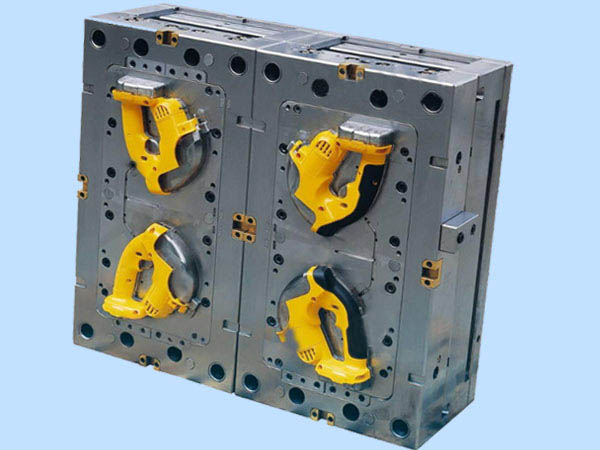
Following is a structured breakdown of essential design rules for high-quality 2K (two-shot) injection molds, covering material selection, mold architecture, process optimization, and defect prevention.
1. Material Compatibility & Bonding
● Chemical Adhesion: Select compatible materials (e.g., TPE over PP, PC/ABS blends) with proven bonding performance.
● Thermal Expansion: Ensure similar shrinkage rates to prevent delamination.
● Surface Energy: Modify mold surfaces or use plasma treatment to enhance bonding for challenging material pairs.
2. Mold Architecture & Mechanism
● Rotary vs. Core-Back Designs:
○ Rotary molds (indexing plates) suit high-volume production.
○ Core-back molds (retractable cores) allow complex geometries but increase tooling costs.
● Alignment Precision: Use hardened guide pins (<0.005mm tolerance) to prevent misalignment between shots.
● Parting Line Optimization: Minimize flash by ensuring tight shut-offs between mold halves.
3. Gate & Runner Systems
● First Shot Gates: Position to avoid interference with second-shot flow (e.g., submarine gates for hidden vestiges).
● Cold Runner vs. Hot Runner: Hot runners reduce waste but require precise temperature control to prevent material degradation.
● Sequential Valve Gates: Ideal for controlling flow in multi-material applications.
4. Cooling & Thermal Management
● Conformal Cooling Channels: 3D-printed molds enable uniform cooling for both materials, reducing cycle time and warpage.
● Isolated Temperature Zones: Maintain different temps for each material (e.g., higher heat for TPE to improve bonding).
5. Defect Prevention Strategies
● Sink Marks: Adjust wall thickness ratios (max 2:1 between materials).
● Warpage: Optimize cooling symmetry and ejector pin placement.
● Delamination: Increase melt temperature or injection pressure at bonding interfaces.
6. Process Optimization
● Shot Sequence: Validate first-shot geometry to ensure proper second-shot encapsulation (simulate with Moldflow®).
● Clamping Force: Account for higher pressure needs in 2K molding (typically 10–20% more than single-shot).
7. Industry-Specific Applications
● Automotive: Overmolded seals (TPV over PA6) require UV-resistant materials.
● Medical: Silicone over rigid plastics needs FDA-compliant bonding.
● Consumer Electronics: Soft-touch grips (TPU over PC) demand precise texture replication.
High-quality 2K injection molds require a balance of material science, mold mechanics, and process optimization. Prioritize precision in alignment, efficient cooling, and thorough simulation to achieve consistent, defect-free parts while minimizing cycle times and costs. Partner with experienced mold designers to validate concepts early and iterate for optimal results. Custom 2k injection mold manufacturer, SOMETOOL(SAM Mold) is specialized on reliable and high quality precision injection molds, die casting and injection molding. 70% from our molds we export to our customers in USA, Germany, England, Finland, Japan. 30% molds remain in our factory for injection molding.


 +86 13421913167
+86 13421913167
 E-mail
E-mail
